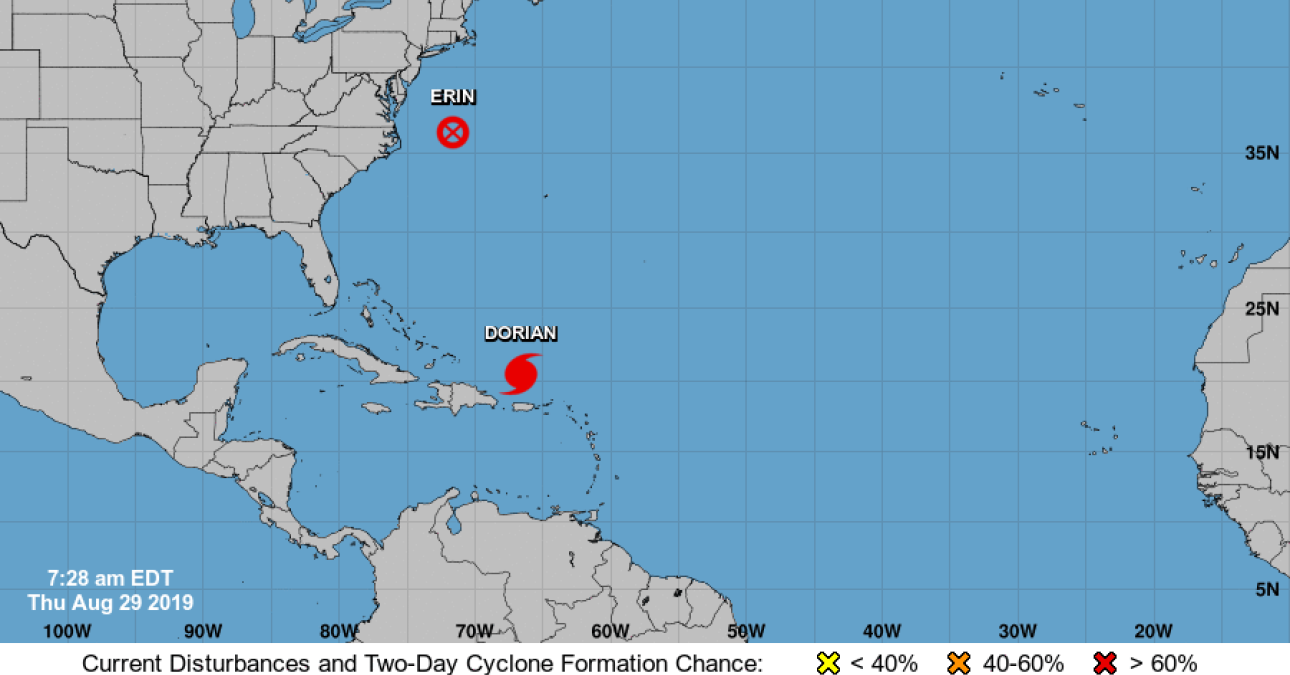
Florida Cultural Institutions: Be Prepared for Hurricane Dorian
As of early this morning, the National Hurricane Center reports that Tropical Storm Dorian is forecast to strengthen into a major hurricane in the coming days. The storm has the potential to impact Florida's east coast, and we encourage everyone in the path of the storm to prepare for possible strong winds, heavy rain, and flooding. Here are some helpful tips for cultural institutions in the region to help safeguard their collections. CCAHA also offers Disaster Recovery and Emergency Planning & Response services. Click here to learn more.
- Track the storm via the National Hurricane Center.
- Monitor information via the Florida Division of Emergency Management.
- Gather your staff and review your disaster plan today. No disaster plan? Put that at the top of the to-do list once the storm passes (and hope you don’t need it this time).
- If you have a disaster plan, make sure everyone has a printed copy to take home. An electronic version may be useless if you lose power.
- Make sure staff, volunteer, and board contact lists are up to date. Determine how you will communicate with one another before, during, and after the storm.
- Make sure your insurance and disaster recovery vendor contact information is readily available
- If you don’t already have up-to-date images (photographic/video) of your facility’s exterior and interior, including storage areas, now’s the time to take them. Being able to illustrate how your building and collections looked before damage will be helpful if the need arises to pursue recovery financing.
- Back up electronic records and store the back-ups off-site or in the cloud.
- Secure outdoor furniture, bike racks, book drops, or anything that can become a projectile in strong winds.
- Move collections that are in areas vulnerable to flooding – i.e., the floor, the basement – or susceptible to rain – near windows or under roofs.
- If you have time, cut lengths of plastic sheeting to be able to throw them over shelves or equipment should the building envelope be compromised.
- Know the location and shut-off procedures for water, electricity, and gas.
- Review individual or family plans. You’ll feel better attending to your organization knowing that your loved ones are safe.
- Click here for tips on what to do before, during, and after a hurricane.
- Keep this 24/7 hotline number handy: 202.661.8068. The National Heritage Responders, a team of trained conservators and collections care professionals, are available 24/7 to provide advice.
- Download FEMA fact sheets “After the Flood: Advice for Salvaging Damaged Family Treasures” and “Salvaging Water-Damaged Family Valuables and Heirlooms” from the FEMA website.
- Familiarize yourself with the disaster declaration process in case one is declared for your state.